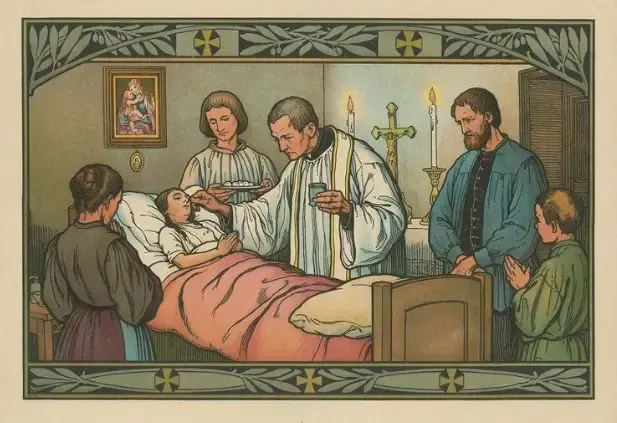Anointing of the Sick
The Anointing of the Sick as a Sacrament
The Sacrament consists essentially in an anointing with oil which may be blessed by the bishop. The anointing is on the forehead and on the hands of the sick person in the Roman rite accompanied by the prayer of the priest who asks for the special grace of this sacrament.
This sacrament confers a special grace which unites the sick person more intimately to the Passion of Christ for his good and for the good of all the Church. It gives comfort, peace, courage, and even the forgiveness of sins if the sick person is not able to make a confession. Sometimes, if it is the will of God, this sacrament even brings about the restoration of physical health. In any case this Anointing prepares the sick person for the journey to the Father’s House.
In the Sacrament of Anointing of the Sick, through the ministry of the priest, it is Jesus who touches the sick to heal them from sin – and sometimes even from physical ailment. His cures were signs of the arrival of the Kingdom of God. The core message of his healing tells us of his plan to conquer sin and death by his dying and rising.
The Rite of Anointing tells us there is no need to wait until a person is at the point of death to receive the Sacrament. A careful judgment about the serious nature of the illness is sufficient.
When the Sacrament of Anointing of the Sick is given, the hoped-for effect is that, if it be God’s will, the person be physically healed of illness. But even if there is no physical healing, the primary effect of the Sacrament is a spiritual healing by which the sick person receives the Holy Spirit’s gift of peace and courage to deal with the difficulties that accompany serious illness or the frailty of old age.

For more information regarding this website, please contact tlegein@holyspiritlakewales.org
WeConnect | By LPi | Privacy Policy



